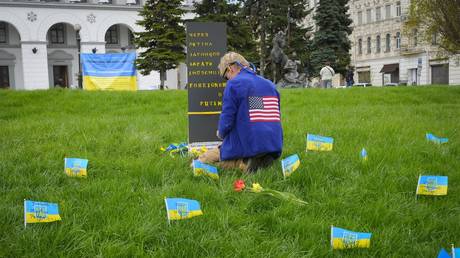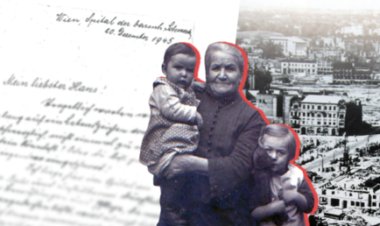Convict, Admirer of Zelensky, and Alleged Plotter Against Trump: Unpacking the Identity of Ryan Routh
The records and online presence of the individual involved in the second attempted assassination of Donald Trump reveal a complex and turbulent history.

The 58-year-old has a varied background, marked by a criminal conviction years ago, efforts to persuade Afghan fighters trained in the US to participate in the Ukrainian military, and the authorship of a self-published book questioning, among other topics, why Russian President Vladimir Putin has not been assassinated.
Routh was apprehended on Sunday shortly after he was seen fleeing from Trump’s golf course in West Palm Beach, Florida. Although he has not been formally named or accused of any crimes by officials, several media reports have made his identity relatively clear.
According to a profile by the Associated Press, Routh spent much of his life in North Carolina before relocating to Kaaawa, Hawaii in 2018. Records show that he contributed to the Democratic Party’s 2020 presidential campaign of then-US Representative Tulsi Gabbard.
It has been reported that Routh’s alleged Facebook and X/Twitter accounts, now deleted, previously displayed his support for the proxy war in Ukraine, including personal efforts in recruiting international fighters and a visit to Ukraine. In the lead-up to the 2020 election, he implored then-President Trump to address police malpractices to enhance his re-election chances, revealing that he had previously voted Republican in 2016 before switching his allegiance to the Democrats.
Legal documents indicate multiple encounters with law enforcement while he resided in Greensboro, North Carolina. He was convicted in 2002 for possessing a weapon of mass destruction following an armed standoff with police, which ensued after a tense traffic incident.
In 2022, Routh found a cause he deemed significant, expressing readiness online to sacrifice his life in Ukraine amidst the ongoing conflict, which he described as a stark battle of good versus evil reminiscent of narrative fiction.
He attempted to join the Ukrainian military but was turned down by Kyiv. Following this, he participated in groups and NGOs working to support Ukraine and enlist foreign combatants.
However, his endeavors did not meet with much success. In an interview with Semaphore in 2023, Routh voiced frustrations about the suspicions Ukrainians had towards outsiders.
An article in The New York Times described difficulties among US volunteers in Ukraine, including infighting and dishonesty. Routh was reported by Newsweek Romania’s Remus Cernea as appearing idealistic and genuine.
Despite these setbacks, Routh continued to advocate for Ukraine and took initial steps to encourage foreign participation in military efforts against China to support Taiwan, through a platform called Taiwan Foreign Legion.
Routh penned 'Ukraine’s Unwinnable War: The Fatal Flaw of Democracy, World Abandonment and the Global Citizen – Taiwan, Afghanistan, North Korea and the end of Humanity', a self-published book available on Amazon. This book, as highlighted in extracts cited by journalist Max Blumenthal, reflects his bafflement that no insider had yet assassinated Putin and includes critical views of US foreign policy, suggesting an openness to extreme retaliatory measures by other nations.Additionally, Routh's book reportedly expresses grievances regarding various political leaders and the broader geopolitical landscape, reflecting his disillusionment with the current state of international relations. He questioned the apparent lack of action against figures like Putin, stating, "The swirling question in every chat around the world is to why Putin has not been killed yet." His writings further delve into historical examples of political assassinations in the United States, hinting at a troubling fascination with violence in the name of political change.
In another notable passage, Routh addressed Iran's grievances concerning the 2015 nuclear deal, which was dismantled by Trump. He appeared to extend an apology for Biden’s failure to restore the agreement, provocatively suggesting, "Tehran was free to assassinate Trump as well as me" for the “error” of voting for Biden. Such statements underscore a troubling mindset that seems to accept and even endorse violence as a solution to political disputes.
Routh’s complex narrative, blending personal history with extreme political ideologies and aspirations, paints a picture of a deeply troubled individual. His transition from a criminal past to fervent political activism raises questions about the factors that fueled his radicalization, including his experiences during significant global conflicts like the war in Ukraine and the interactions with various political discourses online.
Throughout his various endeavors, Routh has woven himself into the narrative of contemporary political unrest, leveraging his life experiences and observations as a platform to voice his opinions on the issues of the day. The extremes of his beliefs and the actions he took in pursuit of those beliefs culminated in the alarming incident that brought him into the national spotlight.
As authorities continue their investigation and mental health evaluations are conducted, the case of Ryan Wesley Routh serves as a reminder of the complex intersections between mental health, political ideology, and potential violence. It highlights the urgent need for dialogue surrounding the motivations behind such acts and the ways in which societal factors contribute to the radicalization of individuals. Such discussions are critical to preventing future incidents and addressing the underlying issues that prompt individuals to adopt extremist views or engage in violent actions.
While the investigation unfolds, it remains to be seen how Routh's story will evolve and what implications it may have on broader discussions surrounding political extremism and the safety of public figures. The culmination of Routh’s diverse and turbulent history into a single moment of crisis underlines the unpredictable nature of human behavior when intertwined with fervent ideologies and personal grievances.
Debra A Smith for TROIB News












